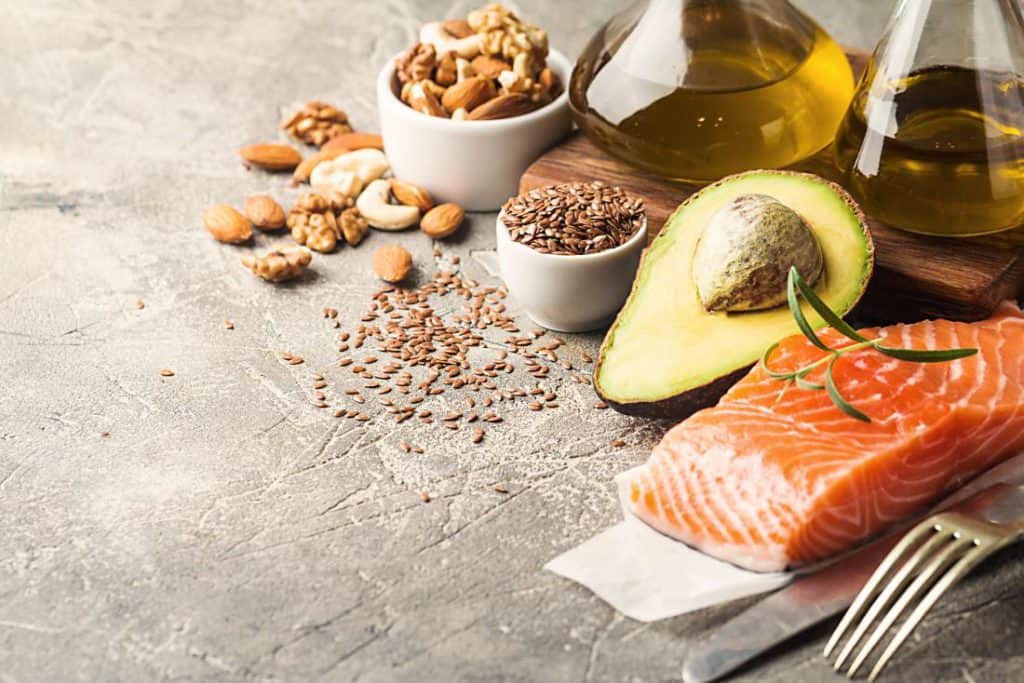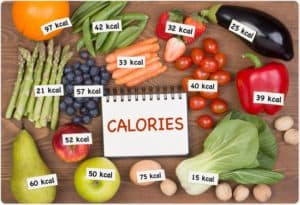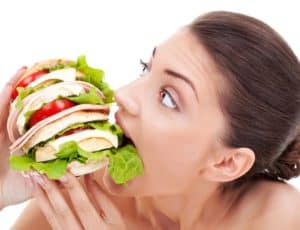In the keto diet, fat is king. Fat will be the primary nutrient you pay the most attention to because, after all, this eating plan calls for up to 80% of the daily calories to come from fat. However, not all fats are created equal.
The keto diet can quickly lead to eating an excessive amount of unhealthy fat. Many people boil it down too simply and think they just need to eat a lot of fat and avoid carbs.
It’s unusual how quickly the ketogenic diet gained popularity. A high-fat diet has never been promoted previously. Research on selecting fats within the framework of a high-fat diet is so limited.
Despite the fact that both saturated and unsaturated fats are thought to be keto-friendly, sources of unsaturated fat are still preferred. According to the American Heart Association, saturated fats can increase your LDL, or “bad,” cholesterol whereas unsaturated fats can aid in lowering cholesterol levels (AHA). These unsaturated fats have been proven to be heart-healthy and anti-inflammatory.
Harvard School of Public Health lists the following foods as having unsaturated fat:
- Nuts like walnuts, macadamias, almonds, and Brazil nuts.
- Avocados and avocado oil, as well as seeds like flax and pumpkin seeds.
- Olives and olive oil, as well as oily fish including salmon, tuna, anchovies, and sardines.
For those on the keto diet, all of these sources of fat are healthy.
Coconut oil provides certain health advantages despite being a source of saturated fat. When compared to butter and olive oil, coconut oil boosted high-density lipoprotein (HDL), or good, cholesterol. The cholesterol in question can guard against heart disease.
What Exactly Are Fats?
The Good Fats
-
Unsaturated Fats
-
Monounsaturated Fats
Mono-unsaturated fatty acids, or MUFAs, are a type of unsaturated fat. “Mono,” means one. A diet that has moderate-to-high amounts of monounsaturated fats also helps with weight loss, as long as you are under the calories that you’re burning.
Request a call back!
Poly-unsaturated fats along with mono-unsaturated fats are considered healthy fats, as they lower your risk of heart disease, especially when substituted against saturated fats. It contains omega-3 and omega-6 fatty acids, which are essential for the functioning of the brain.
Request a call back!
Why Does The Body Require Fats?
Although the main function of fats is to provide your body energy, it also plays several other significant roles, including:
- Helps in absorbing the fat-soluble vitamins A, D, E, and K.
- Regulates inflammation and immunity.
- Maintains the health of the cells, including the cells of skin and hair.
- Adds richness to food, which helps in satisfying hunger.
Fats And The Keto Diet
The Keto Diet is a high-fat diet. It is a healthy eating routine where 75% of the calories are derived from fats. Now, this helps your body to get into ketosis, a state in which instead of carbohydrates you burn fat as your main source of energy.
It’s one of the most focused macronutrients. But it should be noted that some options for fat are healthier than others. Fat is one of the three most focused macronutrients on a keto diet. Fat is the primary source of energy, so choosing healthy options for fat and eating the right portion of the same is important.
What Fats Are Good To Have On The Keto Diet?
When following a keto diet, knowing about the right sources of food helps in following the diet easily. Good sources of fat can help in transitioning into a state of ketosis in the right way. Just the way carbs are categorized into good and bad, fats are categorized into good and healthy fats, and the bad ones are unhealthy.
-
Olive Oil
It is an essential item in every household, especially when you are on a keto diet as it’s a highly healthy unsaturated fat. Incorporate a drizzle of Pompeian Organic Extra Virgin Olive Oil as a light salad dressing. You can use it as a cooking oil to sauté or to marinate meat and vegetables.
-
Chia Seeds
Chia seeds are a good source of fat to be included in the keto diet. As they are high in fiber content, including chia seeds in your diet makes you feel full for longer and helps in reducing your calorie intake. Incorporating chia seeds into your keto diet can help in weight loss.
Request a call back!
-
Egg Yolk
Egg yolks should be included in the keto diet as they are a good source of healthy fat. Egg yolks contain monounsaturated and polyunsaturated fats in a healthy partition. Apart from helping in weight loss while on the keto diet, egg yolks help in increasing immunity, improving bone density and resilience, maintaining healthy blood pressure, reducing overall body inflammation, and reducing risks of kidney stones.
-
Salmon
Salmon is one of the most nutritious varieties of fish. It is packed with omega-2 fatty acids and is also a great source of protein. The omega-3 fatty acid content in salmon is good for improved heart health. High levels of protein in salmon help in controlling the appetite and feeling full and satisfied for longer. Thus, salmon is a great source of fat to be incorporated into the keto diet.
Request a call back!
-
Olives
Olives are a great source of fat which can be incorporated into the keto diet. They contain 11 to 15% of fat out of which 4% is oleic acid, which is considered to be a monounsaturated fatty acid. Fat content in olives helps in reducing body inflammation and in lowering the risks of heart diseases.
-
Flaxseeds
-
Nuts
Nuts are fully-packed with protein and are a rich source of healthy unsaturated fatty acids that can be effectively incorporated while following the keto diet. They are a rich source of fiber, plant sterols, omega-3 fatty acids, Vitamin E, and L-arginine. They can reduce hunger pangs and are also amazing for heart health.
-
Peanut Butter
Peanut butter is a healthy source of fat if included in the keto diet, which is highly rich in protein content which helps in making you feel full for a longer period of time. It is also rich in other nutrients such as fiber and contains a good portion of healthy unsaturated fat. Including peanut butter in your keto diet helps in controlling cravings for junk and unhealthy foods.
-
Avocados
Avocados are technically categorized as fruit and they offer a rich source of heart-healthy unsaturated fatty acids. They’re also richly packed with fiber to improve digestive health. A one-half portion of an avocado contains 161 calories, 2 grams (g) of protein, 15 g of fat, 9 g of total carbs, and 7 g of fiber (bringing it to 2 g of net carbs).
Request a call back!
-
Coconut Oil or MCT
Coconut Oil has many unique nutritional properties which makes it well-suited to include in a keto diet. For starters, it contains medium-chain triglycerides (MCTs). Unlike long-chain fats, MCTs are taken up directly by the liver and converted into ketones or used as a rapid source of energy.
What Are Bad Fats?
Fats are considered to be bad when it comes to following a diet. It may be because certain types of fat may play a significant role in occurrences of health issues like cardiovascular disease, diabetes, cancer, and obesity. Some fats are better to consume than others, and may even help to promote improved health.
Certain varieties of fats have been linked to negative impacts on heart health, but others have been found to offer significant health-related advantages. Some of the vital bodily functions also rely on the presence of fat. Fat is as essential to your diet as protein and carbohydrates in order to fuel your body with energy.
Foods and oils contain a mixture of fatty acids. However, the predominant type of fat they contain is what makes them “good” or “bad”. Being aware of the difference can help you determine the types of fats to avoid, and the ones to eat in moderation.
-
Saturated Fats
Saturated fat is a type of dietary fat. It is one of the kinds of unhealthy fats, these fats are most often solid at room temperature. Consuming a large amount of saturated fat increases your blood cholesterol, in particular, the bad (LDL) cholesterol.
Saturated fat can be found in the fat present in meat and chicken, from dairy products, and from some plant foods like palm and coconut oil. This fat can also be found in processed foods like biscuits, pastries, and takeaway foods that have been prepared with ingredients like butter, palm oil, cheese, and meat.
-
Trans Fats
Trans fat increases our risk of heart disease by increasing the bad (LDL) cholesterol and reducing the good (HDL) cholesterol in our blood. To lower the risk of heart disease, trans fat should be limited as much as possible. Small amounts of trans fats usually occur naturally in dairy products, beef, veal, lamb, and mutton.
The processing of fats and oils during the stage of manufacturing produces artificial or ‘industrially produced trans fats. They’re found in foods that use partially hydrogenated vegetable fats, like deep-fried foods and baked foods like biscuits, cakes, pastries, and buns.
Request a call back!
Fats To Avoid On A Keto Diet
Saturated fats qualify as foods that should be limitedly consumed, but some studies suggest that these fats have significant health benefits as well. So try to incorporate them in moderation and according to the limit that matches up with your macronutrient requirements.
-
Corn Oil
It\’s a highly refined oil that is high in inflammatory omega-6 fat that should be limited in a Keto Diet.
-
Canola Oil
It contains small amounts of trans fat, which is not good for health.
-
Grapeseed Oil
It is worse than the others because it contains an even higher amount of Omega-6 fatty acids.
Request a call back!
-
Peanut oil
It is harmful to cells if their numbers grow too high in the body.
-
Rapeseed oil
Rapeseed oil is the main source of canola oil which contains high levels of erucic acid that have been associated with heart damage.
-
Safflower oil
The safflower oil will not have any adverse reaction on the body, as long as they are consumed under the recommended amounts.
Request a call back!
-
Soybean Oil
It can cause side effects in the stomach and intestines such as constipation, bloating, and nausea.
-
Sunflower Oil
People are usually allergic to sunflower seeds and some cases of asthma, mouth swelling, itching of the mouth, hay fever, skin rashes, lesions, vomiting, and anaphylaxis have been reported.
-
Margarine
It is often packed with trans fat, which has been associated with an increased risk of heart disease and other chronic health issues.
Request a call back!
-
Vegetable Shortening
It contains trans fat which increases the risk of heart disease, death from heart disease, heart attack, and stroke.
Now that you are aware of what are the bad fats and good fats to have while on keto, you can make much better decisions when it comes to planning out your meals for the entire week. As long as you avoid the bad fat sources listed above, you’ll start experiencing the advantages of ketosis without the negative effects of unhealthy fats.
How To Get Enough Of Fats On The Keto Diet
Starting a ketogenic diet can make it difficult to consume the recommended quantity of fat. A person can make sure they get adequate fat each day by organizing their meals.
One can increase the amount of fat in their diet by:
- Butter and coconut oil are two fats that can be added to hot beverages including coffee, matcha, green tea, and hot chocolate.
- Using veggies as a vehicle: Low-carbohydrate vegetables like broccoli, zucchini, or celery can be transformed into a high-fat snack or side dish by adding a high-fat sauce or dip. Low-carb salads might benefit from the flavor of salad dressings made with olive or avocado oil.
- Making fat bombs: High-fat, low-carb snacks in the form of balls are known as fat bombs. Many fat-bomb recipes that use coconut or nut butter as a foundation may be found online. Fat bombs can be frozen and eaten at a later time.
- Eating oily fish: Compared to white fish, such as cod or haddock, oily fish, such as salmon or tuna, has more healthy fats.
- Choosing fatty cuts of meat: Different cuts of meat have different amounts of fat. You can increase the amount of fat in a meal by eating poultry that still has its skin on.
- Eating fatty snacks: Convenient snacks that contain fat include olives, boiled eggs, almonds, and avocados. These can be placed in a bag and eaten on the go.
Fat-Rich Keto-Friendly Recipes
The ketogenic diet, also known as the “keto diet,” is a high-fat, low-carbohydrate diet that is designed to help the body enter a state of ketosis, in which it burns fat for energy instead of carbohydrates. Here are a few keto-friendly recipes that are rich in healthy fats:
- Avocado-deviled eggs: To make avocado-deviled eggs, slice boiled eggs in half and remove the yolks. Mash the yolks with avocado, mayonnaise, mustard, and a pinch of salt. Fill the egg whites with the yolk mixture and sprinkle with paprika.
- Keto chicken salad: To make keto chicken salad, mix diced cooked chicken with mayonnaise, diced celery, and diced onion. Serve the chicken salad on lettuce leaves or with cucumber slices.
- Keto tuna salad: To make keto tuna salad, mix canned tuna with mayonnaise, diced celery, and diced onion. Serve the tuna salad on lettuce leaves or with cucumber slices.
- Keto avocado smoothie: To make a keto avocado smoothie, blend avocado, unsweetened almond milk, frozen spinach, and a scoop of collagen peptides until smooth. Add ice and blend until desired consistency is reached.
- Keto bacon and egg cups: To make keto bacon and egg cups, wrap a strip of bacon around the inside of a muffin tin and crack an egg into the center. Bake at 350°F for 15-20 minutes, or until the egg is cooked to your desired level of doneness.
All your excuses end right here, stop waiting and get started, this is as easy as it gets! Check out our transformation stories, health content, and recipes! Follow us on Instagram for the daily dose of the Keto Lifestyle!
Request a call back!



































